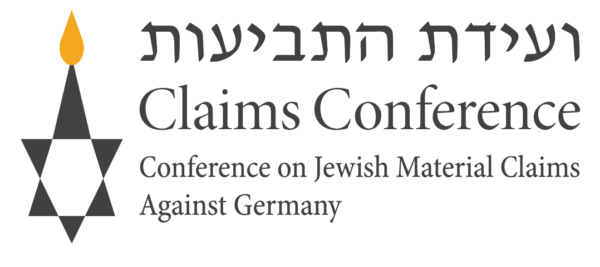Frequently Asked Questions
General compensation FAQs
The Claims Conference currently administers several direct payment programs for Holocaust survivors.
There is only one application form for most programs. Download the form here.
If you need help or have questions, please Contact Us.
If the payments of the deceased Nazi victim were administered through a German government program, you must contact the competent German government office to determine eligibility:
BEG (“Wiedergutmachung”) offices
BADV (Ghetto Fund one-time payment) offices
ZRBG (Ghetto Pension) offices
Please note, in accordance with German government guidelines, heirs are not entitled to file an application form for payments from the Hardship Fund, Article 2 Fund, CEE Fund, Child Survivor Fund.
The Spouse of Holocaust Survivor Fund is open to spouses of deceased recipients of the Claims Conference’s Article 2 or Central and Eastern European pension funds.
In accordance with German government guidelines, the Nazi victim has to be alive at the time the application is filed. If a member of your family passed away after filing an application but before being approved, please contact us.
The Spouse of Holocaust Survivor Fund is open to spouses of deceased recipients of the Claims Conference’s Article 2 or Central and Eastern European pension funds.
For information on German government compensation programs, including application forms and contact addresses, please visit our page on payments from Germany. The Claims Conference does not administer these payment programs.
The German government’s indemnification programs under the BEG laws of the 1950s and 1960s (sometimes known as “Wiedergutmachung”) are administered from offices in Germany and you must contact Germany directly.
For general questions, or if you don’t know which office administers your BEG pension, you can contact the central inquiry office of the German Federal Ministry of Finance (which oversees Holocaust related issues) at the following address:
Bundesfinanzdirektion West (Federal Finance Office (West))
Arbeitsbereich RF 42 C
Zentrale Auskunftsstelle zur Wiedergutmachung Nationalsozialistischen Unrechts
Wörthstrasse 1 – 3
50668 Cologne, Germany
(Tel. +49 221 22 25 50).
If you are unable to contact Germany, you can consult your local German consulate or the Embassy of Germany in Washington, D.C.
Payments related to Holocaust-era compensation or restitution by and large are tax-exempt in most countries. Nevertheless, the laws vary by country and by payment.
Note that Germany’s Ghetto Pension payments are generally considered to be Holocaust-related payments, and should not be considered as regular Social Security pensions. As such, they should not affect the amount of Social Security being received from the country of residence and are not subject to taxation of any amount.
Read more about Tax Exemptions on Holocaust Restitution Payments and
Holocaust Payments and Federal Benefits.
Today most property and asset claim programs established in Western Europe since World War II have expired.
The Claims Conference is working with the World Jewish Restitution Organization (WJRO) for the enactment of property compensation/restitution legislation in Eastern Europe. At this time, however, there is no governmental program open for the filing of property claims.
Provenance research and documentation of the plundering of Jewish cultural property continue though the Claims Conference Looted Art and Cultural Property Initiative in conjunction with WJRO.
The commission that processed Holocaust insurance claims (ICHEIC), closed in 2007. See https://icheic.ushmm.org/ for more information.
If you know the name of the insurance company that issued the policy, and the company is still active today, you can try to contact them directly about a claim.
Companies and organizations to contact about Holocaust insurance claims:
Holocaust Claims Processing Office (State of New York)
CIVS Commission for the Compensation of Victims of Spoliation (France)
German Insurance Association (GDV)
Assicurazioni Generali Group (Italy)
Holocaust Foundation for Individual Insurance Claims (Netherlands)
The Claims Conference does not file individual insurance policy claims.
PLEASE NOTE: The information presented herein is intended for information purposes only and solely as a general guide. The information is not intended as legal advice. It is a summary of specific issues and does not represent a definitive or complete statement of the programs and policies of the agencies or governments mentioned. The information may not address the special needs, interests, and circumstances of individual recipients. Individuals seeking specific information on a program are urged to contact the relevant program or to consult their social service agency or help center representative. While the Claims Conference provides information on a general basis to various help and assistance centers, each help and assistance center is solely responsible for the advice provided by it. To the best of our knowledge, the information is correct as of the date of this document and this information may change subsequent to the said date – May 26, 2020

